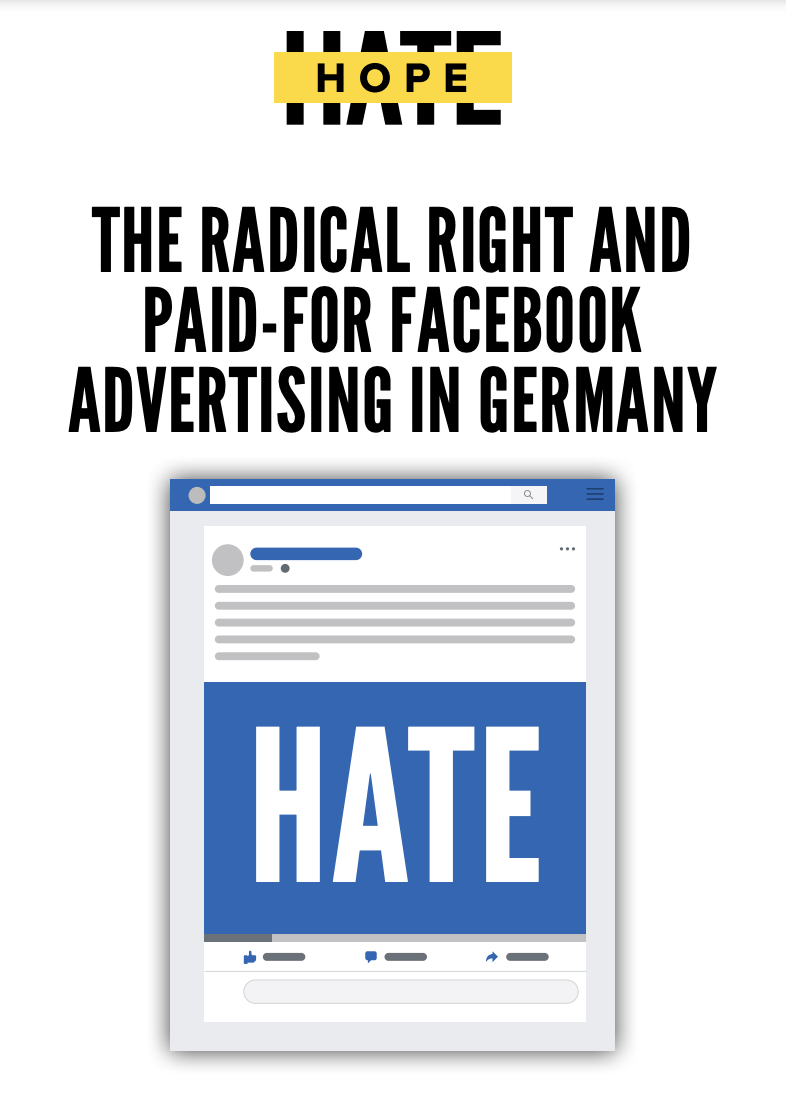HOPE not hate uses cookies to collect information and give you a more personalised experience on our site. You can find more information in our privacy policy. To agree to this, please click accept.

With an estimated 44 million users in Germany, Facebook is the most important means by which Germany’s political parties campaign online. Through the platform the parties can reach their followers and networks with regular posts as well as with paid-for advertisements. These allow highly targeted content for a small cost to any user on the platform.
Because of the precise targeted nature of paid-for ads, their impact can be larger than that of ordinary posts. Moderation of intolerant content therefore has to be up to the task. Worryingly, our investigation also found that Facebook has allowed advert from the local pages of the racist and antisemitic Nationaldemokratische Partei Deutschlands (NPD). NPD has in March 2021 used Facebook’s platform to direct racist ads to several thousand users. These paid-for adverts have avoided moderation despite clearly breaking Facebook’s community guidelines.
This report also provides a snapshot of how parties in the Bundestag are making use of paid-for ads, examining the spending patterns by selected pages belonging to each of the major parties over the past two years. Specifically, it compares the parties spending with that of AfD and analyses the role that paid-for ads plays for radical right actors.
It finds that AfD spends less on Facebook ads than other parties in the German Bundestag while instead being considerably more successful in terms of organic influence through shares and interactions.
Facebook’s role as a host for political advertising came under greater pressure in September 2019, with the announcement that Twitter would no longer carry political advertising. Twitter founder Jack Dorsey explained the decision by claiming that “internet political ads present entirely new challenges to civic discourse: machine learning- based optimization of messaging and micro- targeting, unchecked misleading information, and deep fakes.”
In Germany, as in most democracies around the world, the use of social media for political campaigning is a hot-button issue, with concerns the role that recommendation algorithms, fake accounts and echo-chambers can play in increasing political polarisation.
The racist advertisements that we found during our investigation emphasise these issues as well as the overall issue of lacking moderation on the platform. It is deeply troubling that Facebook is profiting from racist advertising on its platform.


HOPE not hate reveals two more extremist candidates from Reform UK, in the latest of a string of embarrassments for the party UPDATE: Just hours…